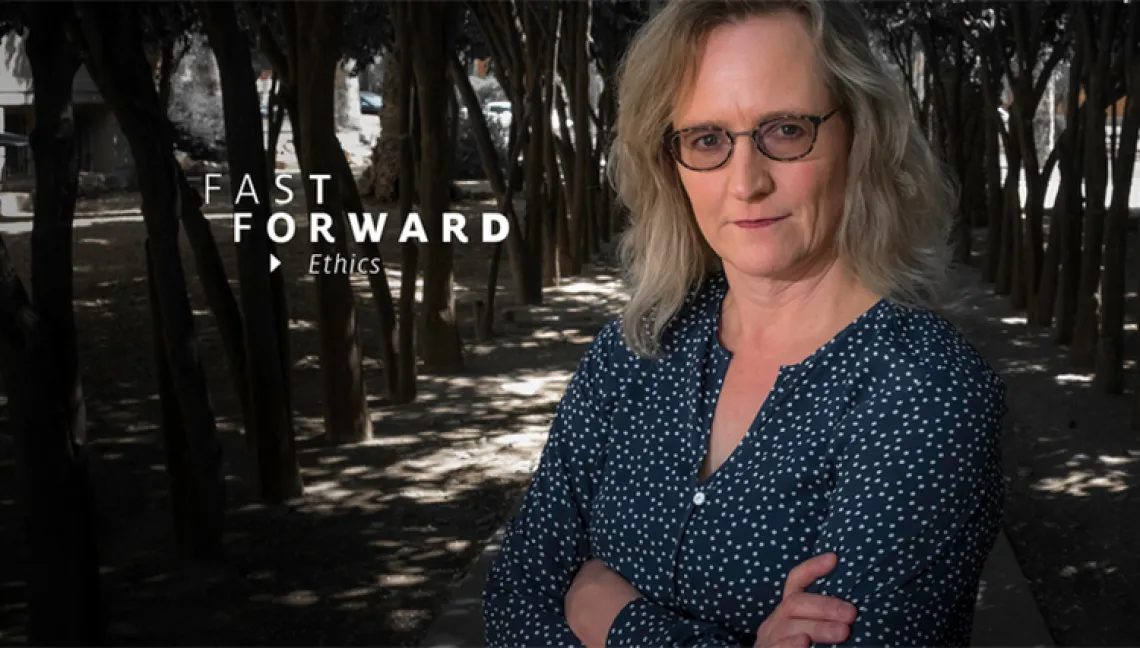The Darker Side Of Digitalization
UA researchers are calling for a collective approach to a host of emerging ethical issues in the rapidly changing technological world, where today there are more questions than answers.

Catherine Brooks is associate director of the UA School of Information, which brings together faculty and students focused on various areas of information science, including virtual reality, artificial intelligence and machine learning. (Photo: Bob Demers/UANews)
As driverless cars hit the road, how will they make moral decisions in life-or-death situations?
As wearable sensors and implantable medical devices are used more widely, how will we protect the personal data they collect?
As artificial intelligence advances, how will we ensure that there remains a place in the workforce for human laborers?
These might sound like questions from a science fiction novel, but these once-hypothetical quandaries are now very real, and University of Arizona experts say higher education needs to address them, in both research and instruction.
UA faculty members Catherine Brooks and Kay Mathiesen, both in the UA's School of Information, are particularly interested in ethical issues involving information — including digital privacy, algorithmic discrimination and the spread of misinformation online.
They say addressing these and other complex challenges will require a collective approach that cuts across disciplinary lines.
"The grand challenges of the day are best resolved when we work together and focus on problem areas as opposed to disciplines," says Brooks, associate director of the School of Information, which brings together faculty and students focused on various areas of information science, including library science, virtual reality, artificial intelligence, data science and machine learning.
"We can't teach and talk about social issues like ethics, privacy and human freedom by relegating these topics into colleges," says Brooks, also an associate professor of communication and director of the UA's Center for Digital Society and Data Studies. "We can't only talk about citizens' rights in law or philosophy programs, for example. Issues of privacy or bias are something we should understand when creating new software, wearable technologies and other tools. We need people to understand how to build robots with social concerns in mind."
That sort of cross-disciplinary thinking is central to the School of Information, which launched in 2015 in the College of Social and Behavioral Sciences. The school is part of an international consortium of 89 such "iSchools" that work on issues at the intersection of people, information and technology. The UA's iSchool is the only one in the Southwestern U.S.
The work of iSchools is especially timely now, as near-daily headlines raise questions about how data is being shared, interpreted, manipulated and protected.
Story by Alexis Blue in University Communications.
The digital, physical and biological worlds are converging with startling speed, and a future that was unimaginable only a few years ago is already upon us. University of Arizona researchers are at the forefront of this sweeping change, often working across disciplines toward important discoveries. The UANews series Fast Forward is introducing some of the UA's change agents — and showing how their efforts are transforming the way we live.

